


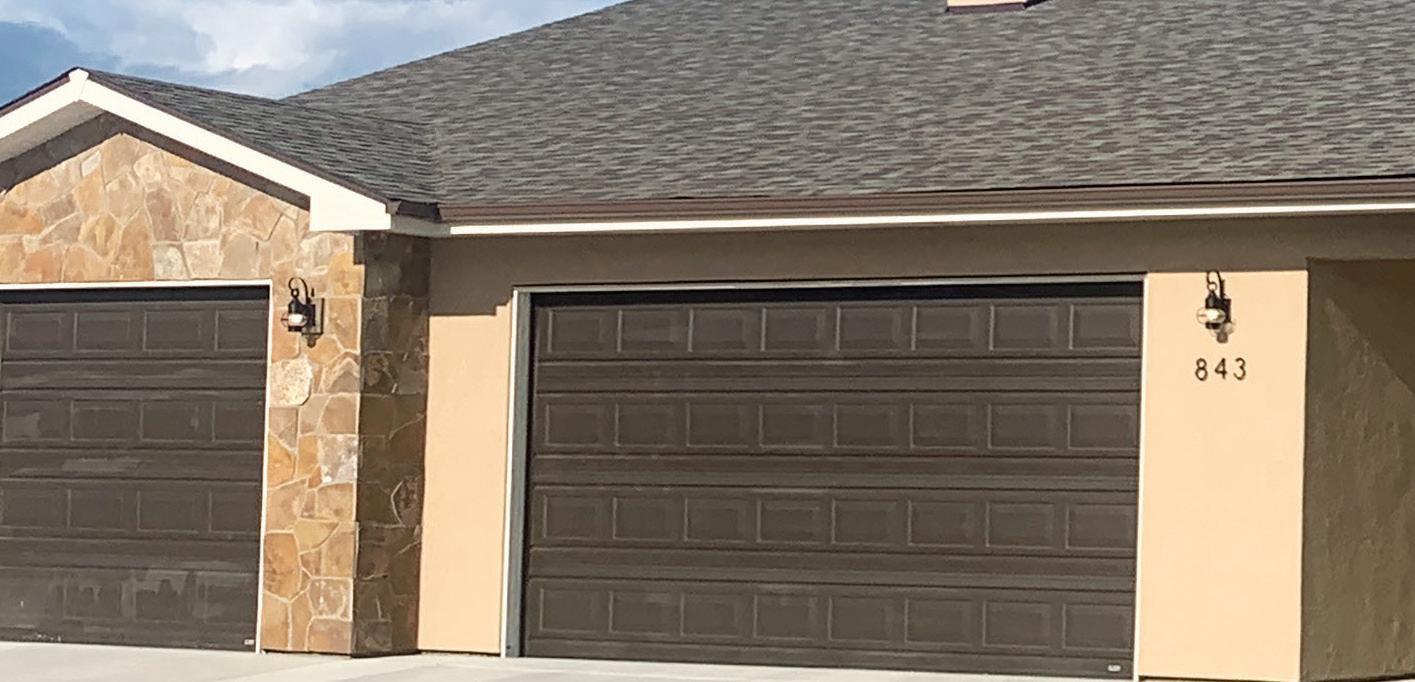




































 Bonnie Walker, GRI Broker/Owner
Bonnie Walker, GRI Broker/Owner
(970) 201-4050 bewalker74@gmail.com
1114 Primrose Lane • $455,000
• The Catalpa Floor Plan
• 3 Bedrooms or could be 2 bedrooms & office
• Walk-in shower in Guest Bath, Master Bath has jacuzzi tub/ shower combo
• Living Room with built in entertainment center & gas log fireplace


• Dining Room with bay window and access to large patio
• Kitchen with all the appliances, ample cabinets and granite countertops
• Laundry and pantry off kitchen with access to two car garage. Call for more information on L#20241806call on MLS #20233788.
1153 Primrose Lane • $455,000


Rancher in 55+ community, built in 2004, this home offers three bedrooms, 2 baths and two car garage. Country porch with swing and private patio off dining room with gate to driveway. Living, dining, nook and hall to bedrooms with prefinished hardwood, tile in the kitchen and both baths. Corner gas log fireplace in living room. Kitchen with all appliances (gas range), oak cabinets and formica countertops, separate pantry and access to two car garage. Primary bedroom 15x12, primary bath with double vanities, walk-in shower with seat, walk-in closet and separate closet for linens. Two other bedrooms and guest bath with tub/ shower combo and pedestal sink. This home has solar. Sold “AS IS, WHERE IS “. For more information call on MLS #20233788.
• Only 12 Lots
• One Home Sold, Four Other Homes in various stages of construction


• All homes are 3 bedrooms, 2 baths and two car garage
• Homes can be customized on the interior to suit your needs
• HOA fee is TBD and will include all landscaping, maintaining shrubs, trees, lawns, irrigation system and snow removal
• Lot 7 is sold
• Lot 5 model home
• Lot 10 reserved
Directions: I-70 to Fruita, North off exit to Ottley, Right on Ottley, Left on Pine, Right on Sunrose, Left on Periwinkle Lane, then left on Snowdrop Court.
Call for details.

* This subdivision is not associated with Village at Country Creek







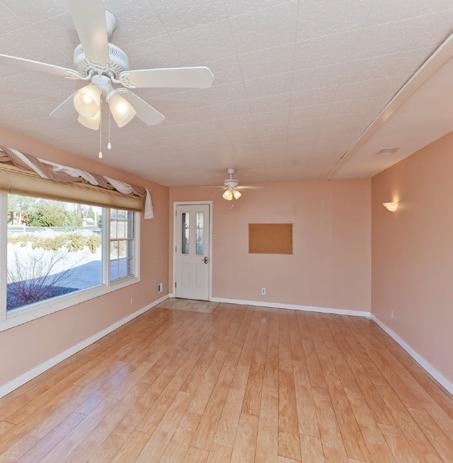
Lots of amenities with this property!
Very spacious 4452 square foot home on 1 acre in North Grand Junction. 6 bedrooms and 6 baths including a 1 bedroom 1 bath inlaw or caretaker apartment.
Plenty of room for toys on the west parking lot, plus a 3-car garage and a one-car garage with lots of storage.
Enjoy outdoor living with a pool, hot tub, putting green, sand box, dog run, fire pit, natural gas grill and low maintenance landscaping. The home has privacy in the back yard and within the home.
Cozy up to one of 3 gas fireplaces in the winter. Call now for a showing. Listing agent is also the owner.
$1,300,000



Next

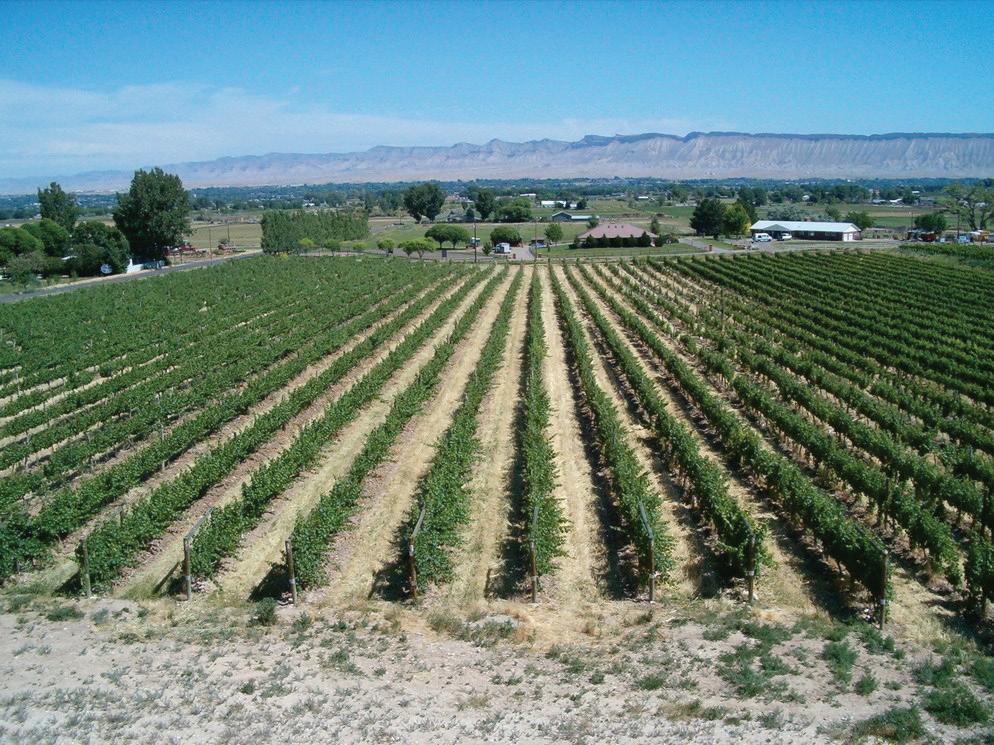

10 ACRE COLORADO VINEYARD | 3107 A 1/2 Rd, Grand Junction
10 ACRE COLORADO VINEYARD | 3107 A 1/2 Rd, Grand Junction
10 ACRE





10 ACRE COLORADO VINEYARD | 3107 A 1/2 Rd, Grand Junction
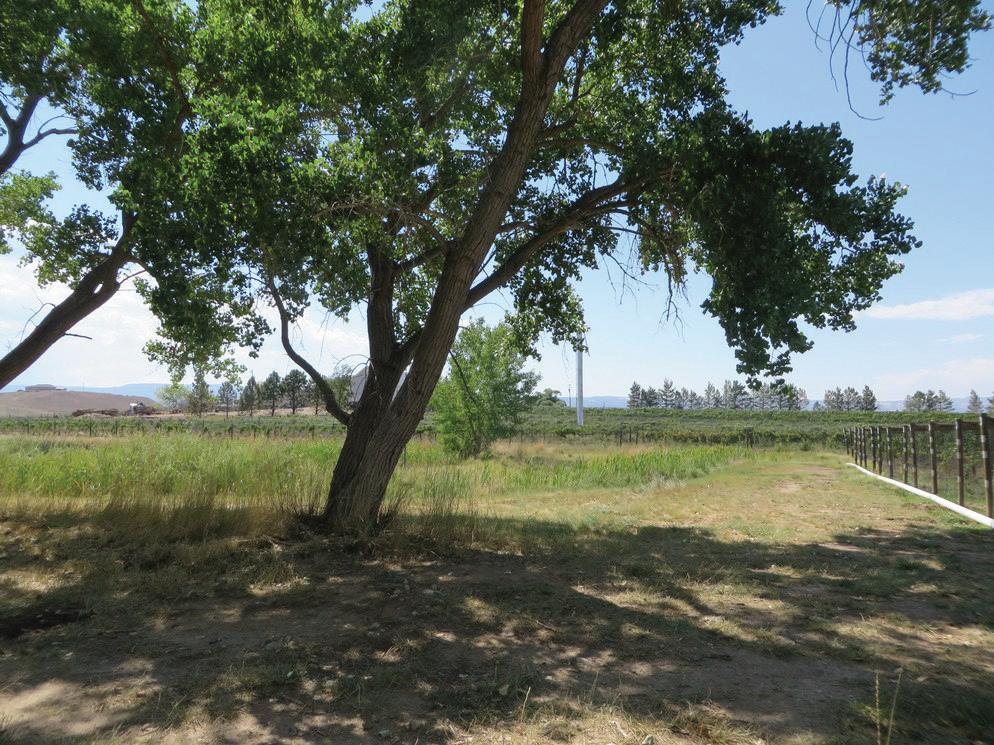
| 3107 A 1/2 Rd, Grand Junction
| 3107 A 1/2 Rd, Grand Junction
10 ACRE COLORADO VINEYARD |
3107 A 1/2 Rd, Grand Junction
Opportunity to own an established production Colorado vineyard with the potential for RSF4+ development. Adjacent to sewer and other utilities. Outstanding building sites. Senior water rights on the Colorado river. Includes 8.5 acres of Cabernet Sauvignon, Chambourcin, Riesling, Rkatsiteli, and Merlot grapevines.
Opportunity to own an established production Colorado vineyard with the potential for RSF4+ development. Adjacent to sewer and other utilities. Outstanding building sites. Senior water rights on the Colorado river. Includes 8.5 acres of Cabernet Sauvignon, Chambourcin, Riesling, Rkatsiteli, and Merlot grapevines.
Opportunity to own an established production Colorado vineyard with the potential for RSF4+ development. Adjacent to sewer and other utilities. Outstanding building sites. Senior water rights on the Colorado river. Includes 8.5 acres of Cabernet Sauvignon, Chambourcin, Riesling, Rkatsiteli, and Merlot grapevines.
Opportunity to own an established production Colorado vineyard with the potential for RSF4+ development. Adjacent to sewer and other utilities. Outstanding building sites. Senior water rights on the Colorado river. Includes 8.5 acres of Cabernet Sauvignon, Chambourcin, Riesling, Rkatsiteli, and Merlot grapevines.
Opportunity to own an established production Colorado vineyard with the potential for RSF4+ development. Adjacent to sewer and other utilities. Outstanding building sites. Senior water rights on the Colorado river. Includes 8.5 acres of Cabernet Sauvignon, Chambourcin, Riesling, Rkatsiteli, and Merlot grapevines.
Opportunity to own an established production Colorado vineyard with the potential for RSF4+ development. Adjacent to sewer and other utilities. Outstanding building sites. Senior water rights on the Colorado river. Includes 8.5 acres of Cabernet Sauvignon, Chambourcin, Riesling, Rkatsiteli, and Merlot grapevines.















•
•


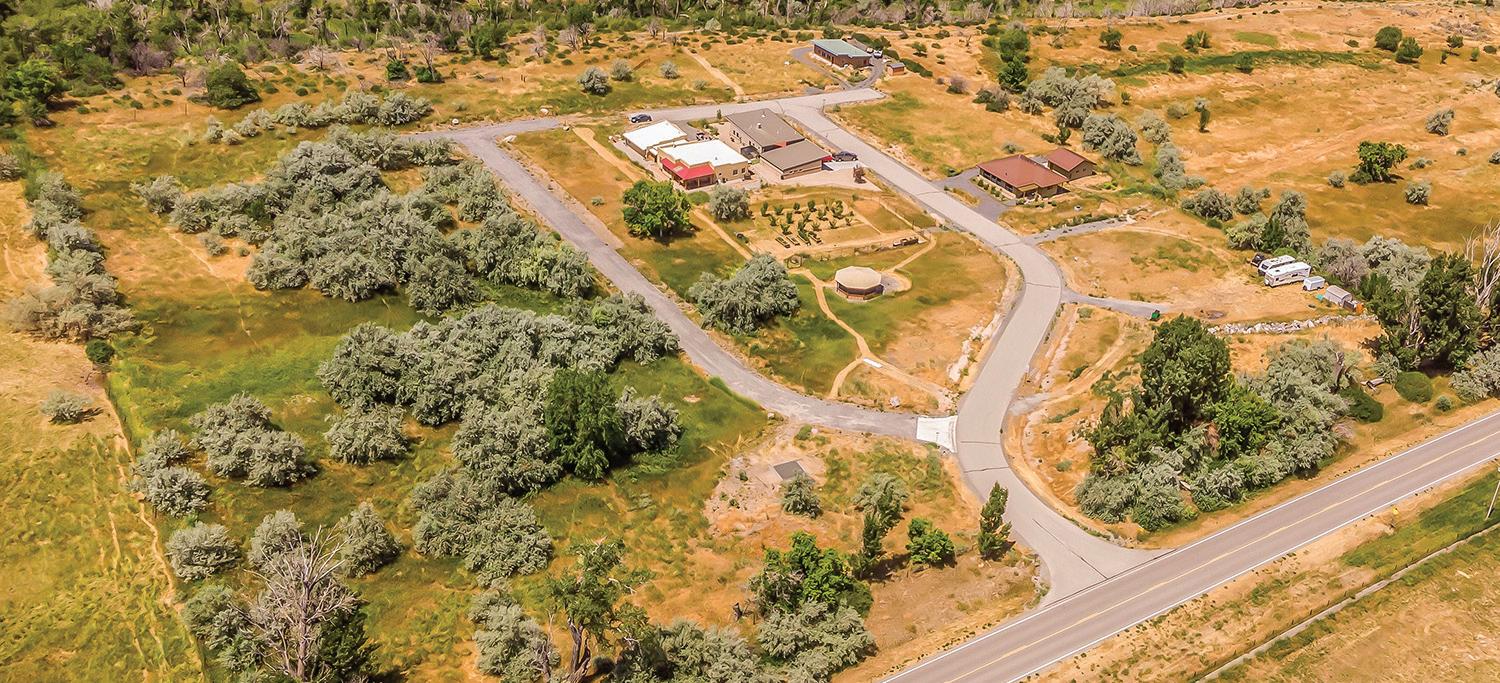


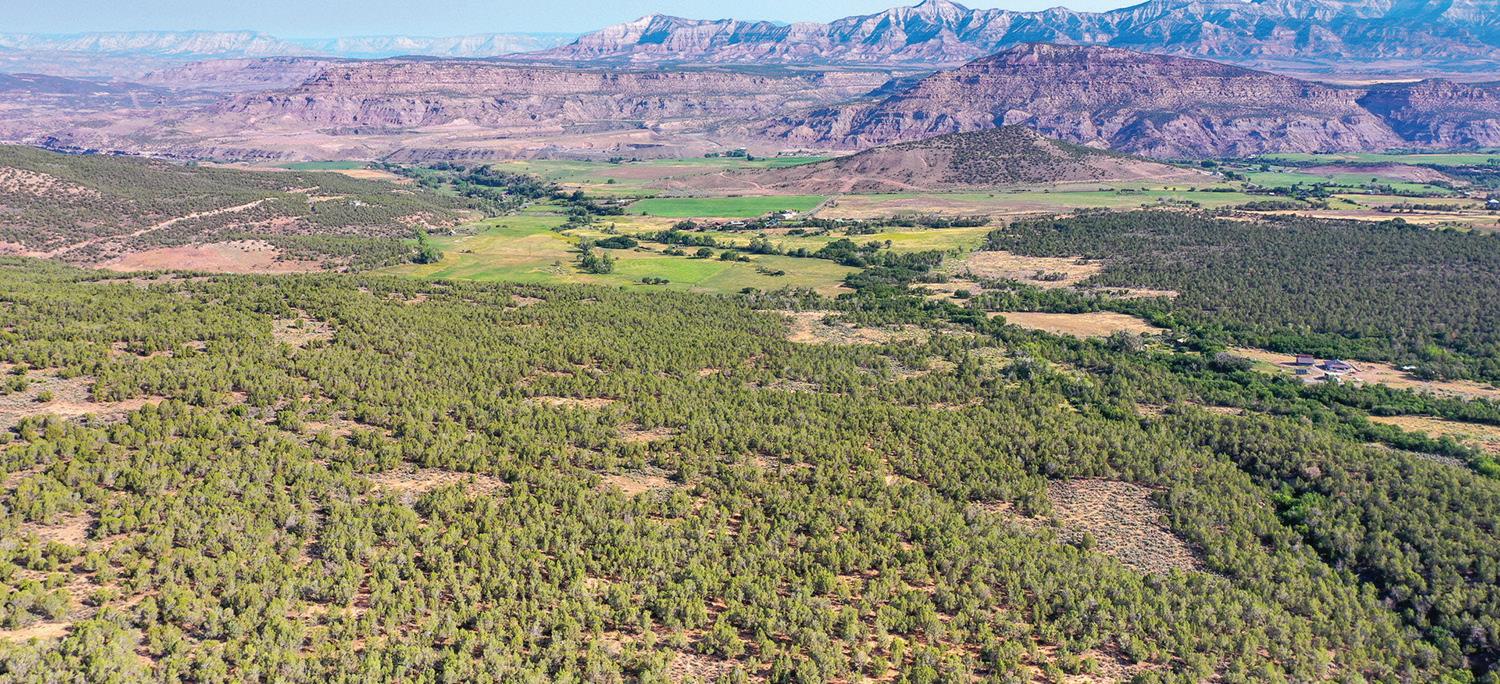



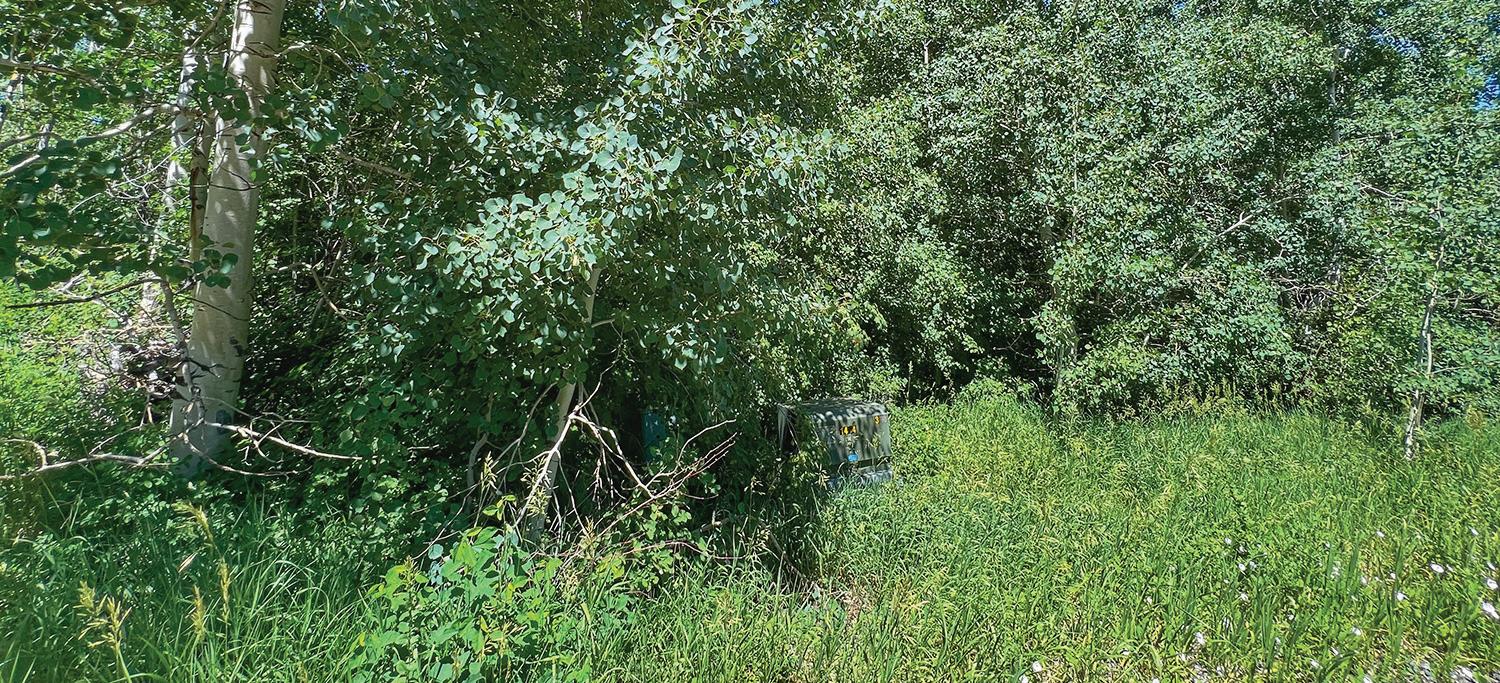




• Affordable Living – Enjoy quality homes at a reasonable price in this new subdivision.
• Spacious Lots – Large 8000+ square foot lots provide ample space for your needs.
• Variety of Floor Plans – Homes starting at 1400 sq. ft., suitable for various lifestyles.
• Durable Exteriors – Low maintenance stucco and stone finishes ensure long-lasting beauty.
• RV Parking – Select lots come with generous RV parking spaces.





10897 Mesa Street – $315,000
Come have a look at this adorable cottage in Mesa, Lot size is 97x127. Yard is fenced, has a raised garden area, and right now has a hen house, wood shed, a spot for RV parking and off-street parking outside of the double car garage. New roof 2023, and other upgrades in 2022. Home includes an old pot-bellied stove, an old-fashioned claw tub. Powderhorn Resort & Ski Area, Grand Mesa National Forest and other recreational activities are less than 10 miles. All information is deemed reliable and subject to error. Buyer to verify all information. No commissions are paid on Seller concessions.



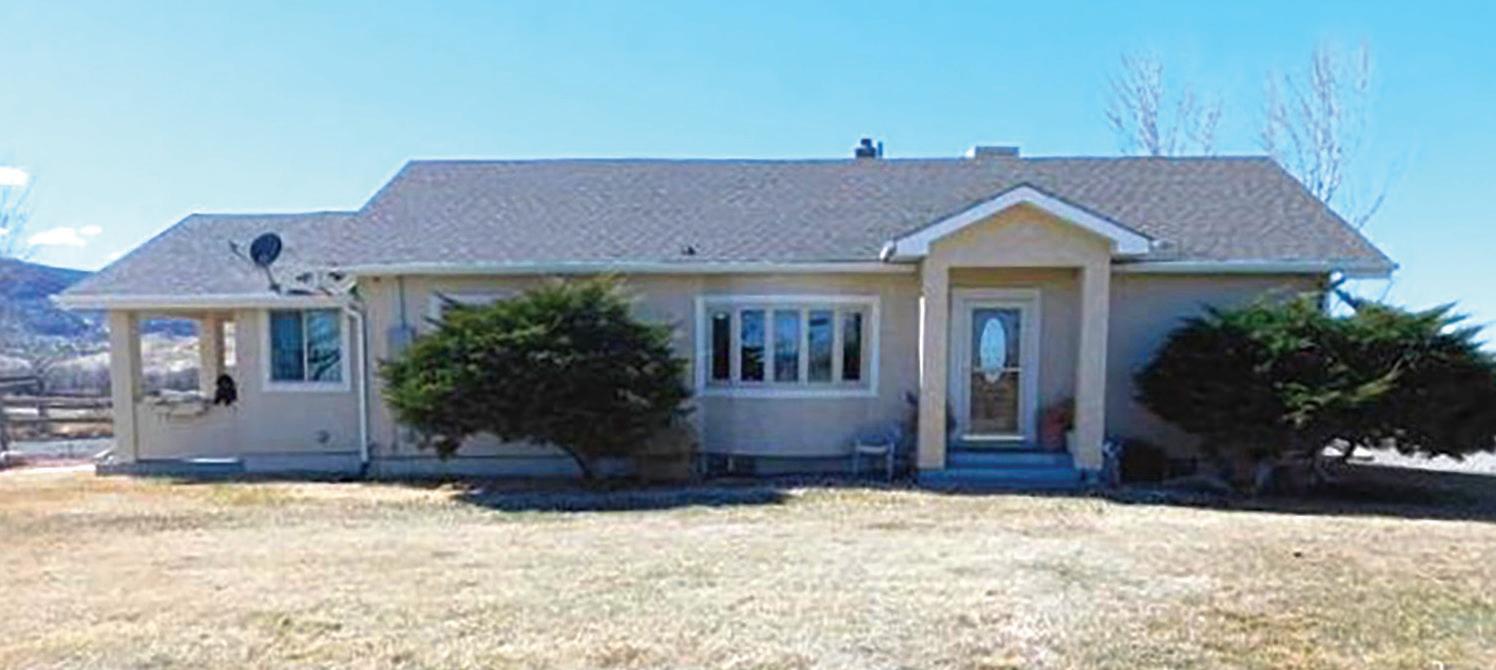



a wide range of business


or even
Sewer is
in, entrance is already paved, and all utilities are nearby. Irrigation water may be
Don’t miss out on this unique opportunity! MLS #20241983 Call Chris Young 970-640-1642 Morgan Young-Gilmore 970-589-5708




























• Homes starting at 1800 square foot
• 3-6 bedroom
• 3 car garage minimum
• RV parking and storage on site
• Stucco exteriors with optional stone accents
• Architectural 30-year shingles
• Nature’s Composite fencing
• Pressurized irrigation
• Parks & walking paths
• LOTS FOR SALE





• Homes starting at 1800 square foot
• 3-car garage minimum / RV garages allowed
• Custom design available
• RV parking and storage on site
• Stucco exteriors with optional stone accents
• Architectural 30-year shingles
• Nature’s Composite fencing
• Pressurized irrigation to lot
• Parks & walking paths
• LOT SALE from $170,000+ Bring your builder





Courtesy of the National Association of Realtors – This ultimate timeline ensures the smoothest of transitions!

A real yard. Closets bigger than your average microwave. The freedom to decorate however you darn well please! Making the switch from renting to owning is exhilarating, but many rookie homebuyers find the process trickier to navigate than they expected.
This is why we created our First-Time HomeBuyer Checklist. The 12-month timeline will help you sidestep common mistakes, like paying too much interest or getting stuck with the wrong house. (Yep, it happens!)
Check your credit score. Get a copy of your credit report at annualcreditreport.com. The three credit bureaus (Equifax, Experian, and TransUnion) are each required to give you a free credit report once a year. A Federal Trade Commission study found one in four Americans identified errors on their credit report, and 5% had errors that could lead to higher rates on loans. Avoid last-minute bombshells by checking your score long before you’re ready to make an offer. And work diligently to correct any mistakes.
Determine how much you can afford. Figure out how much house you can afford and want to afford. Lenders look for a total debt load of no more than 43% of your gross monthly income (called the debt-to-income ratio). This figure includes your future mortgage and any other debts, such as a car loan, student loan, or revolving credit cards.
There are plenty of calculators on the web to help you determine what you can afford. If you’re pushing the limits, start reducing your debt-to-income ratio now. Use a budget worksheet to get a reality check on what you may actually be spending every month.
Make a down payment plan. Most conventional mortgages require a 20% down payment. If you can swing it, do it. Your loan costs will be much less, and you’ll get a better interest rate. If,
however, you’re not quite able to save the full amount, there are many programs that can help. FHA offers loans with only a 3.5% down payment. But they require mortgage insurance premiums, which will drive up your monthly payments. The U.S. Department of Housing and Urban Development (HUD) provides a list of nonprofit homebuying programs by state. Also check with credit unions; and your employer might even have an assistance program.
As you’re planning your savings strategy, keep in mind that banks like you to “season” your money. That is, they like to see that you’ve had stable funds in your account for 60 to 90 days before
Prioritize what you most want in your new home. What’s most important in your new home? Proximity to work? A big backyard? An open floor plan? Being on a quiet street? You’ll make a much better decision on what home to buy if you focus on your priorities. If it’s a joint decision, now is the time to work out any differences to avoid frustration and wasted time. Perhaps most important: Know what trade-offs you’re willing to make.
Research neighborhoods and start visiting open houses. But now’s when the fun begins, too. Use property listing sites, real estate magazines, and local real estate offices to find out about neighborhoods, public transport, and cost of living.
Start visiting open houses to get an idea of what kind of homes are in your price range and what neighborhoods appeal the most. Seeing potential homes will also keep you motivated to continue reducing your debts and saving for your down payment.
Budget for miscellaneous homebuying expenses.
Buying a home has some miscellaneous upfront costs. A home inspection, title search, propery survey, and home insurance are examples. Costs vary by locale, but expect to pay at least a few hundred dollars. If you don’t have the cash, start saving now.
Start a home maintenance account. Speaking of saving, start the good habit now of putting a little aside each month to fund maintenance, repairs, and home emergencies. It’s bad enough to have to call a plumber. It’s worse if you’re paying credit card interest on that plumbing bill.
{Making the switch from renting to owning is exhiliarating, but many rookie homebuyers find the process trickier to navigate than they expected.
Collect your loan paperwork. Banks are very particular when it comes to mortgage loans. They demand a lot of paperwork. What they’ll want from you includes:
• W-2 forms — or business tax return forms if you’re selfemployed — for the last two to three years
• Personal tax returns for the past two to three years
• Your most recent pay stubs
• Credit card and all loan statements
• Your bank statements
• Addresses for the past five to seven years
• Brokerage account statements for the most recent two to four months
• Most recent retirement account statements, such as 401(k)
If you start collecting these documents now, it’ll lessen the stress when it’s time to get your loan. Bonus: Looking closely at your loan documents each month will also help you stay focused on saving for your down payment and keeping your debt-to-income ratio low.
Research lenders and realtors. Start interviewing realtors, specifically buyers’ agents. A buyer’s agent will work in your best interest to find you the right property, negotiate with the seller’s agent, and shepherd you through the closing process. Your agent also can be instrumental in finding a lender who’s familiar with first-time home buyer programs.
Even better, look for a mortgage broker, who will shop for a competitive loan rate for you among multiple lenders, unlike a bank, which can only offer its own products.
Get pre-approved for your loan. At this point, if you’ve been following this timeline, your credit score, paperwork, and down payment should be on track. You’ve done your research on lenders and buyers’ agents. Now it’s time to start working with them. First you’ll need to get pre-approved for a mortgage. Make an appointment with your lender or mortgage broker and bring all your paperwork. He’ll run a credit check on you and tell you how much of a loan you’re approved for. It often makes sense to borrow less than the maximum the lender allows so you can live comfortably. Draft a budget that accounts for mortgage payments, insurance, maintenance, and everything else you have going on in your life.
Start shopping for your new home. One you’re pre-approved, the buyer’s agent you’ve chosen will be able to target homes that meet your priorities in your price range. This way you won’t be wasting time looking at homes you can’t afford.
Make an offer on a home. It usually takes at least four to six weeks to close on a home. So if you have a firm move-out date, allow enough time to deal with any hiccups that can delay closing.
Get a home inspection. One of the first things you’ll want to do after an offer is accepted is have a home inspector look at the property. If the home inspector finds something that needs repair, that’s a common example of something that can delay closing.
Triple-check that all your financial documents are in order and review all lending documents before closing. You’re in the home stretch! If you’ve been keeping your documents up to date, and your down payment is in reserve, these final steps are the easiest. Reviewing the mortgage documents is probably the most difficult. Your agent can help guide you through them.
Get insurance for your new home. Don’t forget to secure insurance before closing. You’ll need to bring proof of insurance to closing.
Do a final walk-through. Do a final walk-through of your new home, usually a day or two before closing, to make sure the home is in the shape you and the seller have agreed upon.
Get a cashier’s check or bank wire for cash needed at closing. Make sure you get an exact amount of cash needed for closing. You’ll get that number a few days before closing so you can secure a cashier’s check or arrange to have the money wired. Regular checks aren’t accepted.
